Saudi-Led Coalition Strikes Houthi Security Camp In Yemen's Sanaa
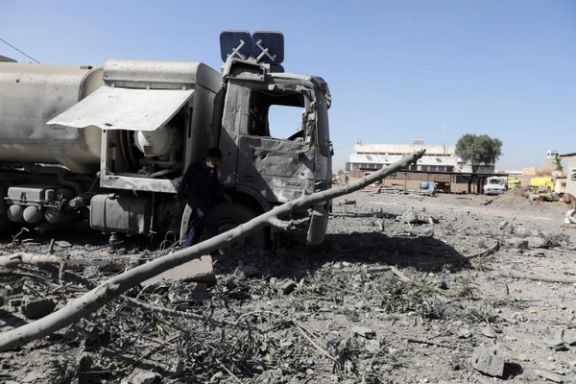
The Saudi-led coalition fighting Iran-aligned Houthi forces in Yemen said it launched air strikes against a Houthi security forces camp in the capital Sanaa.

The Saudi-led coalition fighting Iran-aligned Houthi forces in Yemen said it launched air strikes against a Houthi security forces camp in the capital Sanaa.
The operation, which the coalition said destroyed seven drone and weapons stores at the camp, was in response to a drone the coalition said had been launched from Houthi territory towards Saudi's Red Sea city of Jizan.
The coalition has intensified attacks against targets in Sanaa in recent weeks, as Houthi forces continue to fire drones and missiles at Saudi Arabia.
The Yemeni capital is held by the Iran-aligned Houthi movement, which has been battling the coalition, which backs Yemen's internationally recognized government, for seven years.
Houthi-run Masirah TV said the strikes had hit the Sabaeen neighborhood of Sanaa in the early hours, damaging some civilian homes and causing some damage to a maternity and children's hospital.
During the conflict, which has killed tens of thousands and displaced millions, Houthi forces have regularly sent drones and fired missiles into Saudi Arabia, and the Saudi-led coalition has retaliated with air strikes inside Yemen.
The coalition said it carried out the operation in accordance with international humanitarian law.
Report by Reuters
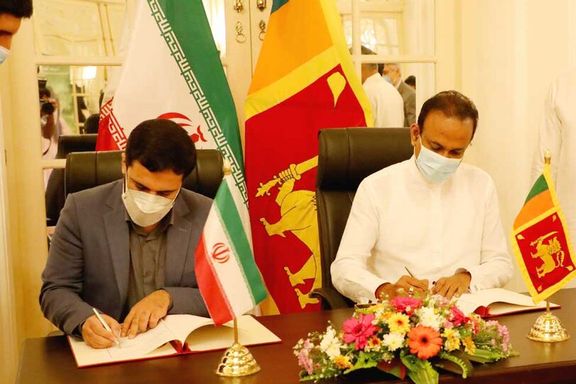
To settle its $251 million debt to Iran, Sri Lanka will barter tea in monthly instalments of $5 million, because of United States sanctions on Iranian banking.
Head of Iran’s Trade Promotion Organization, Alireza Peyman-Pak and Sri Lanka Minister of Plantation, Ramesh Pathirana signed the barter agreement in Colombo on Tuesday.
Pathirana said that the deal makes it possible for the Ceylon Petroleum Corporation to settle its debts with the National Iranian Oil Company without violating US sanctions.
“This scheme will not violate any UN or US sanctions since tea has been categorized as a food item on humanitarian grounds while none of the black-listed Iranian banks will be involved in the equation,” read a statement by Sri Lanka’s plantation ministry.
According to the agreement, Sri Lanka’s Treasury will release equivalent of $5 million in rupees every month to the Sri Lanka Tea Board - a state-run industry regulator– that will then pay individual exporters in rupees at the central bank’s exchange rate.
Iran is among the top 10 importers of Ceylon Tea for the past several decades although purchases have declined following US sanctions.
Iran is trying to increase barter deals amid sanctions. “We have the lower hand and we have to make concessions, which means we have to accept any goods at any price”, Hamidreza Salehi, a member of Tehran’s Chamber of Commerce, has said.
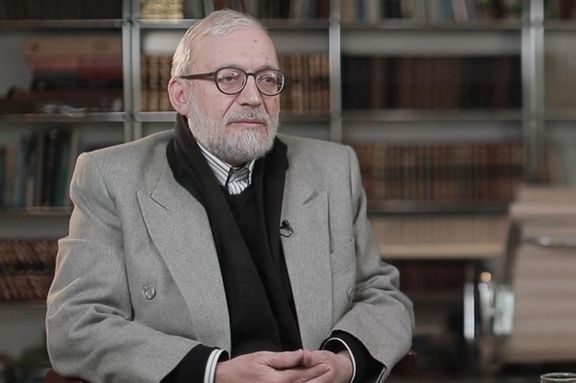
A senior Iranian politician has called for closer cooperation with Taliban, saying the Islamic Republic should have a key role in aiding Taliban’s intelligence.
Mohammad-Javad Larijani, who was a top advisor to Supreme Leader Ali Khamenei in foreign affairs and a former head of Iran’s High Council for Human rights, made the remarks in an interview published on Wednesday.
He said cooperation with the Taliban government is an opportunity for Iran that shouldn’t be missed.
He told Tasnim news agency, affiliated to Iran’s Revolutionary Guard Corps, that Iran’s good relations with the late anti-Taliban leader Ahmad Shah Massoud -- also known as the Lion of Panjshir -- is not a reason to support Ahmad Massoud, the son of the veteran guerrilla commander who has vowed to continue resistance against Taliban.
Larijani, who is currently the chairman of the Iranian Institute for Research in Fundamental Sciences, acknowledged that there are a lot of bad beliefs in Taliban’s ideology, saying that “this new modernized version of Taliban seems to give up on some of their bad ideas because they are not practical, at least temporarily”.
Taliban's victory in August was welcomed by Iran's hardliners as a big defeat for the United States, although some criticized calls to cooperate with "reformed" Taliban.
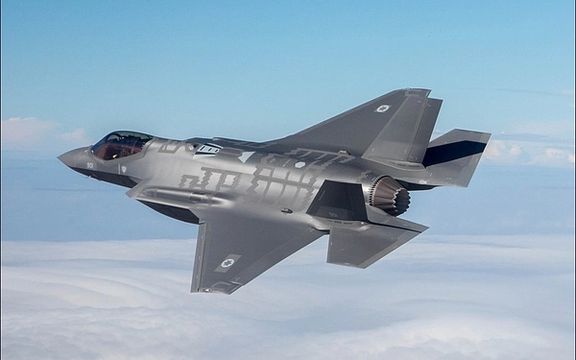
The incoming commander of the Israeli air force Wednesday said that if need be, Israel can successfully destroy Iran’s nuclear facilities “tomorrow.”
Major General Tomer Bar, who is slated to take the helm in April, said in an interview with Israeli daily Yedioth Ahronoth that he is probably the officer who will need to command the strike against Iran's nuclear program if the ongoing talks in Vienna between Tehran and world powers fail.
"I have to assume it will happen in my time, and my shoulders already understand the weight of the responsibility," said the former fighter pilot, who currently commands the Force Design Directorate.
He said that despite reports on Israel’s lack of readiness or other factors hindering a possible strike on Iran, he is certain that it can complete the mission successfully. “There is no way that…I will return home without being able to say “I completed the mission”, he stressed.
"From the moment I sat here at the head of the Force Design Directorate, and the chief of staff spoke with me, the mission of the 'third circle' (Iran) was there… We are not starting from zero. We equipped ourselves with F-35s, we procured thousands of Iron Dome interceptors for multi-layer defense," Bar added.
The third circle, whose primary focus is Iran, refers to the three levels of direct threats facing Israel, the first being small terror groups on Israeli borders, like Hamas; the second being larger threats, like the Syrian army and Hezbollah; and the third being countries that do not share a border with Israel, like Iran and Iraq.
Bar said he believes that as soon as Israel strikes Iran, the next war with Hezbollah will break out. “I have to assume that he [Hezbollah Secretary-General Hassan Nasrallah] will automatically be all in. Thirty years he has waited for this order and there is no way that he will not be there and with the highest intensity. We have to be prepared for this".
He noted that the next war with Lebanon will definitely involve a ground operation, but it will not be comparable to the previous wars. In 2006, Israel waged a ground and air war against Hezbollah with limited success, but critics said ground force level committed was limited.
"This is not raising the volume on the same radio. The familiarity with Hezbollah, the number of targets, the strength built over the years in matters of intelligence and attack capability, electronic warfare, cyber, make it something else entirely. I can stand by my word,” Bar said, adding that Hezbollah cannot imagine Israel’s power.
"Maybe they will try to bring in special forces or shoot at the home front, but we are no longer on this scale. We want a clear victory this time, in a shorter time and with fewer losses," the commander said.
Earlier in the day, visiting US National Security Adviser Jake Sullivan and Israeli Prime Minister Naftali Bennett discussed Iran and the ongoing nuclear talks, stressing the need for a joint strategy. Sullivan said he had been sent to Israel by President Joe Biden "because at a critical juncture for both our countries on a major set of security issues, it's important that we sit together and develop a common strategy, a common outlook".
A senior Iranian commander said on Monday that Israel does not have the ability to strike Iran’s nuclear or military bases without US approval, and repeated threats to attack Israel, as the Revolutionary Guard launched large-scale air and naval drills in the Persian Gulf.
"If Israel carries out attacks against Iran, our armed forces will immediately attack all centers, bases, routes, and spaces used to carry out the aggression," Iranian commander Gholamali Rashid said.
Following weeks of reports of Israeli preparations for attacking Iran's nuclear installations, the Tehran Times published an article -- headlined "Just One Wrong Move"– with a map of purported missile targets in Israel on its front page.
Israel has long threatened military action against Iran, and recently reportedly allocated $1.5 billion for an attack if Iran gets dangerously close to obtaining a nuclear weapon.
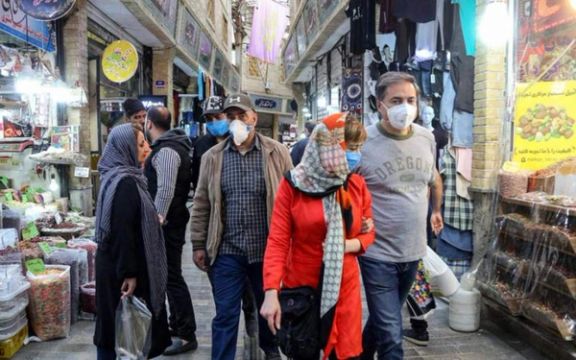
Food and housing expenses in Iran have increased between 300 to 740 percent in the past six years, while wages went up by around 270 percent, a new report says.
The comparison between prices in December 2015 and now is revealing in one important respect. Iran was still under international sanctions six years ago after the nuclear agreement was concluded but economic restrictions were officially still in place. Prices did not change much after sanctions were lifted in early 2016 until the United States imposed new sanctions in 2018, with a devastating impact on the country’s economy.
Fararu website in Tehran has compared prices for this period, without any commentary but the comparison is interesting in the sense that rising prices are closely linked with the fall in the value of Iran’s currency.
The rial has dropped by 732 percent in six years, or rather from December 2017, when it became apparent that Donald Trump was likely to pull out of Barack Obama’s nuclear deal with Iran and impose sanctions.
One can argue that Iran had held up much better during international economic sanctions from 2011-2015, compared with how it has coped with Trump 'maximum pressure'. One reason could be that around the time when international sanctions were imposed global oil prices were hovering around $100-110 a barrel, which provided Iran with a cushion of dollar reserves. In contrast, Trump imposed sanctions on Iran’s oil exports when the average price was $70 a barrel in 2018.
The oil price of $100 in early 2010s was equivalent to 120 dollars in 2018. So, Iran was earning substantially more from its oil exports around 2010 than it did in 2018 after a big price collapse that had started in 2014.
While the US dollar rose 730 percent, housing costs climbed 740 percent on average. This has put a tremendous pressure on wage earners as in some cases rents eat up almost all of a worker's salary.
The main reason why housing costs have increased in par with the value of the dollar is that Iranian real estate owners regard their investment as a hedge against devaluation and ask prices and rents that keeps their income intact in dollars. Sale of properties can decrease, but no one is willing to sell homes and apartments at a loss calculated in dllars. Rents are a different story, as owners ask for more knowing that renters have no other choice.
Beef and chicken prices have also increased by over 300 percent, while Iranian-produced rice, which is a main food staple, has gone up by 500 percent.
The Fararu report calculates that in contrast with much higher prices, wages and salaries have increased by around 270 percent in six years, reaching a maximum of around $140 per month. There is little difference of income between a factory worker and an office employee or a young professional.
In fact, the income of workers in large industrial companies is safer than in smaller services firms which in many instances pay less to employees.
Iranian labor groups say that the minimum monthly salary needed for a family of 3.3 persons should be $400 to afford basic food and housing.
The economic hardship people face has created a potentially explosive political environment where a repeat of mass protests can take place at any moment, according to even government-controlled media in Iran.
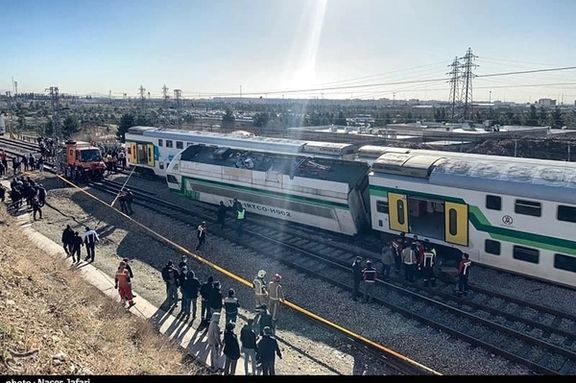
More than 20 people were injured as two metro trains collided in the Iranian capital Tehran on Wednesday.
The accident occured on the Line 5 of the Tehran metro on the Karaj-Golshahr railway when a high-speed train enroute to Sadeqieh station hit a slow-moving local train near the Chitgar station. Line 5 of the metro stopped operating after the incident.
Mojtaba Khaledi, the spokesman for the national emergency services, said that 22 people sustained injuries in the incident and ambulances that were dispatched to the site of the accident transferred 11 people to nearby hospitals. Two of of the injured are in critical conditions. He added that about 20 other people had been stuck in the wagons but were moved out by rescue workers.
Tehran Mayor Alireza Zakani said there are some speculations about the cause of the collision, but further investigation is needed to find out exactly how it happened.
According to Mojtaba Shafi’i, the deputy for transportation in Tehran’s municipality, the wagons are being removed from the railway so that the lines become operational as soon as possible, suggesting that trains can be back on track about noon.